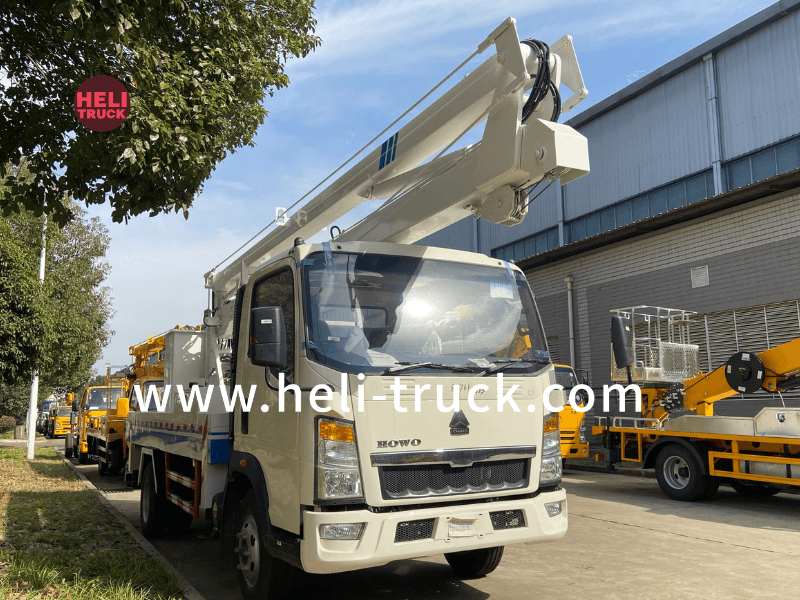Understanding Noise Levels of Garbage Compactor Trucks

Garbage compactor trucks are an essential part of waste management systems in cities and urban areas around the world. These trucks play a crucial role in collecting and compacting waste materials from residential and commercial areas, helping to keep the environment clean and sanitary. However, the operation of garbage compactor trucks can also generate significant noise levels that can impact both the operators of the vehicles and the residents living in the vicinity. In this article, we will explore the noise levels produced by garbage compactor trucks, the factors that influence these noise levels, and the measures that can be taken to mitigate noise pollution.
1. Introduction to Garbage Compactor Trucks
Garbage compactor trucks, also known as refuse compactors or waste compactors, are specially designed vehicles used for collecting and compacting solid waste materials. These trucks typically have a large capacity for storing waste and are equipped with hydraulic mechanisms that compress the waste to maximize the volume of waste that can be transported. Garbage compactor trucks come in various sizes and configurations, ranging from small rear-loading trucks used for residential waste collection to large front-loading trucks used for commercial and industrial waste collection.
2. Noise Levels of Garbage Compactor Trucks
The operation of garbage compactor trucks can generate high levels of noise due to various factors such as engine noise, hydraulic systems, and the compaction process itself. The noise levels produced by garbage compactor trucks can vary depending on the type and size of the vehicle, the condition of the equipment, and the environment in which the trucks operate. Studies have shown that the noise levels generated by garbage compactor trucks can exceed the recommended limits set by regulatory authorities, posing potential health risks to both the operators of the vehicles and the residents living in the vicinity.
3. Factors Influencing Noise Levels

Several factors can influence the noise levels produced by garbage compactor trucks, including:
- Engine Type and Condition: The type and condition of the engine used in the garbage compactor truck can significantly impact the noise levels generated during operation. Older trucks with outdated engines may produce higher levels of noise compared to newer models with modern, quieter engines.
- Hydraulic Systems: The hydraulic systems used in garbage compactor trucks for the compaction process can also contribute to noise levels. Poorly maintained or malfunctioning hydraulic systems can produce loud and disruptive noise during operation.
- Compaction Process: The process of compacting waste materials inside the truck can generate noise as the hydraulic mechanisms compress the waste. The frequency and intensity of the compaction process can influence the overall noise levels produced by the vehicle.
- Vehicle Speed and Acceleration: The speed and acceleration of the garbage compactor truck can impact the noise levels generated by the engine and other mechanical components. Refuse Compactor Truck and abrupt accelerations can lead to increased noise emissions.
4. Health Effects of Noise Pollution
Exposure to high levels of noise pollution, such as that produced by garbage compactor trucks, can have adverse effects on human health. Prolonged exposure to loud noise can lead to hearing loss, tinnitus (ringing in the ears), stress, sleep disturbances, and other health issues. Workers who operate garbage compactor trucks are particularly at risk of developing hearing-related problems due to their constant exposure to high noise levels. Additionally, residents living near waste collection routes may experience annoyance, stress, and reduced quality of life due to the noise generated by garbage compactor trucks.
5. Regulatory Standards and Guidelines
To address the issue of noise pollution from garbage compactor trucks, regulatory authorities have established standards and guidelines to limit the noise levels produced by these vehicles. These standards typically set maximum permissible noise levels for different types of vehicles and specify measures that can be taken to reduce noise emissions. Compliance with these standards is essential to protect the health and well-being of both workers and residents exposed to noise from garbage compactor trucks.
6. Mitigation Measures
There are several measures that can be taken to mitigate the noise levels produced by garbage compactor trucks and minimize the impact of noise pollution on workers and residents. Some effective mitigation measures include:
- Regular Maintenance: Ensuring that garbage compactor trucks are properly maintained can help reduce noise emissions by addressing issues such as engine wear, hydraulic leaks, and loose components that can contribute to noise.
- Noise Barriers: Installing noise barriers along waste collection routes can help reduce the transmission of noise from garbage compactor trucks to surrounding areas. These barriers can be constructed using sound-absorbing materials to dampen noise levels.
- Route Planning: Optimizing waste collection routes to minimize the exposure of residents to noise from garbage compactor trucks can help mitigate the impact of noise pollution. Route planning should take into account factors such as residential areas, schools, hospitals, and other noise-sensitive locations.
- Use of Quieter Equipment: Upgrading garbage compactor trucks with quieter engines, hydraulic systems, and compaction mechanisms can help reduce noise emissions during operation. Investing in modern, noise-reducing equipment can benefit both workers and residents.
7. Conclusion
Garbage compactor trucks play a vital role in waste management systems, but their operation can generate high levels of noise that can impact the health and well-being of workers and residents. Understanding the factors that influence noise levels, the health effects of noise pollution, and the mitigation measures available is essential to address the issue of noise from garbage compactor trucks. By implementing effective measures to reduce noise emissions and comply with regulatory standards, it is possible to minimize the impact of noise pollution and create a healthier and more peaceful environment for all.
